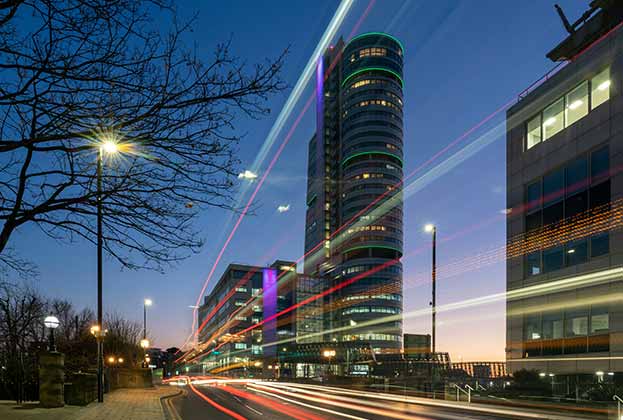The emergence of the Omicron variant introduced an obstacle for the recovery in European office demand, a recovery that had gained momentum during the last six months of 2021.
Nonetheless, many landlords and office occupiers have already adapted to the uncertainties that Covid-19 continues to throw in their direction. That adaptation has created new themes in the market that are likely to be a feature in 2022. Here are five to watch out for in the coming months:
1. Occupancy will continue to respond to the latest government restrictions across Europe, however heads of real estate are now more willing to plan for a workplace after the pandemic than during 2020 as we learn to live and work with the virus. Gaming, fintech and life sciences will establish themselves among the fastest growing occupier sectors, particularly for leases between 500 and 1,000 sq m.
2. Flex office demand is likely to rebound, as occupiers expect additional services and amenity offering on their return to their workplaces. Fitted space will become more popular for larger occupiers seeking conventional space with IT resilience, and an ability to reinforce their own workplace culture. Agile working will become more mainstream, although the physical workplace will remain vital for collaboration, on-boarding, creativity and engagement.
3. Occupier demand will be most resilient for sustainable office buildings, and we anticipate landlords will increase their capital expenditure with more comprehensive refurbishments to avoid stock obsolescence. The built environment accounts for 40 per cent of global carbon emissions and landlords and tenants will look to ensure their real estate meets their emissions targets.
4. European vacancy rates are likely to stabilise across core markets during 2022 as tenant controlled 'grey' space is withdrawn, development pipelines become majority pre-let, and occupier demand continues to gather pace as hiring intentions and employment growth improve. Indeed, Deloitte’s European CFO survey in Autumn 2021 indicated that a net balance of 42 per cent of CFOs expect to increase hiring over the next 12 months, most significantly in the UK, Finland and the Netherlands.
5. We anticipate prime and secondary rents to diverge. Lease incentives for prime space will be gradually withdrawn as demand is most resilient for CBD locations in mixed-use environments and prime rents reach near-record highs. Indexation will also support upward rental pressure for prime, particularly in core Western European markets with sub 5 per cent vacancy rates.

-impact-the-office-sector(1).jpg)

.jpg)






